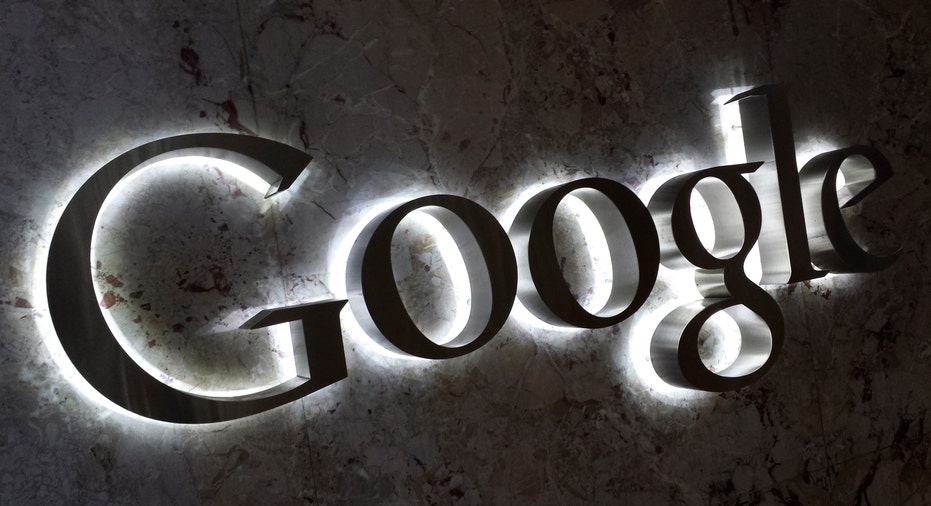What the Heck Happened to Google?

It was nearly four and half years ago that Google CEO Eric Schmidt announced he would be stepping down and passing the keys to the search kingdom to co-founder Larry Page. I still remember Schmidt’s jubilant proclamation “Day-to-day adult supervision no longer needed!” echoing across the Twitterverse.
That assessment may have been a bit premature.
At the time, Google (NASDAQ:GOOG) was the most valuable brand in the world. It was also one of the most popular verbs in any language. The company was growing like a weed and minting cash while keeping expenses under control. And it was poised to overtake Microsoft (NASDAQ:MSFT) as the second most valuable technology company on Earth.
The digital advertising giant had also begun to diversify, taking on everyone from Apple (NASDAQ:AAPL) in mobile devices and Facebook (NASDAQ:FB) in social media to Microsoft in operating systems and Amazon in online retail. If Google chose its battles wisely and executed well, global domination seemed all-but assured.
That’s when everything changed. It’s almost as if Page walked right into that corner office and flipped the switch marked “Fiscal Responsibility” from the “on” to the “off” position. At that point, Page abandoned Google’s second core philosophy, “It’s best to do one thing really, really well,” and started doing just about everything.
The first clue came during Page’s first earnings call with analysts. In two and half minutes he said he was “really excited,” “very excited,” “very, very excited” or “tremendously excited” a total of six times. I guess he sure was excited, like a wide-eyed little kid in an enormous candy store.
Since then, the company has given new meaning to the phrase “trying to be all things to all people.” Besides its core advertising products, Google also runs Android, Android Auto, Android Wear, Books, Chrome, Chromecast, Glass, Gmail, Google+, Google Now, Maps, Wallet and YouTube.
And that’s just the beginning.
Not only has Google announced its intent to become a wireless service provider, it’s well on its way to becoming a broadband ISP. The company already deploys fiber networks in a number of cities. It recently invested $1 billion in Elon Musk’s SpaceX for satellite based Internet service. And it has plans to relay wireless traffic via high-altitude balloons, if you can believe that.
Google has acquired Nest for home automation, Boston Dynamics for advanced robotics and Makani Power for airborne wind power. It led a massive $542 million funding round in virtual reality startup Magic Leap. It’s also working on a drone delivery service, an artificial neural network for machine vision (whatever that is) and, of course, those infamous self-driving cars. The company even wants to sell drivers car insurance.
Meanwhile, co-founder Sergey Brin runs the company’s Google X lab. Among its many “moon shots,” the lab has a life sciences division working on everything from a smart contact lens that measures glucose in diabetics’ tears and tremor-cancelling forks for Parkinson’s patients to a disease-detecting nanoparticle platform and a project to combat aging.
What does the company have to show for all that and more? Besides a lot of bills, surprisingly little. Over the past four years, Google’s annual revenue growth has plummeted from 30% to 10% while expenses have ballooned from 69% to 75% of sales. And 90% of its $66 billion in sales still come from online advertising.
That dependence on ad revenue is becoming a real problem. A widespread consumer shift from desktop to mobile is hurting Google’s bread and butter product in three distinct ways:
1. Search advertising, where Google is strong, is becoming more and more fragmented as users migrate to searches within mobile apps as opposed to search engines.
2. Display advertising, where Google is weak, is a far bigger piece of the advertising pie on mobile devices than on desktop computers.
3. Advertisers pay less per mobile ad click.
As a result of all that, shares of Google haven’t budged in over a year and the stock has dramatically underperformed versus competitors and broad market indices for more than two years. And it all started when Schmidt turned the company over to Page and Brin.
Yes, Google should diversify, but not this way. It needs to offset slowing growth and shrinking profits, not run wild investing in anything and everything.
Google’s current structure is unfocused and unwieldy. I haven’t seen anything like it since the big, bloated behemoths of the 70s and 80s. That led to decades of painful divesting and downsizing before corporate America finally learned to focus and become lean.
Not surprisingly, that’s one of the core principles that Steve Jobs taught Apple: to focus only on what it does best, choose products carefully and say “no” to everything else. Funny thing is, that used to be one of Google’s principles too – before the kids took over the candy store. Maybe it’s time to bring back some “adult supervision.”



















